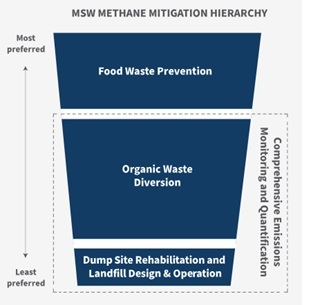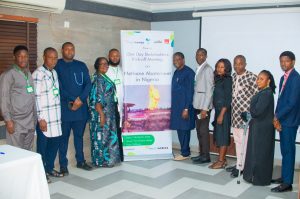by: Engr. Oghenegare Emmanuel Eyankware
The United Nation’s International Day of Zero Waste is a day set aside to highlight the criticality that lies in waste management and the absolute need to promote sustainable production and consumption patterns across the world. The establishment of this day was as a result of a resolution reached on December 14th, 2022 at the 77th session of the UN General Assembly. The significance of this day amongst other reasons is inherent in the fact that it is vital to ensuring a sustainable future for the world. In line with assertion of the UN, “Waste, what to do with it, and how to reduce it, is one of the big topics of our time” hence, it has become pertinent that all hands must be on deck to address the issue of waste.
It is also important to note that projections show that the global waste generation is expected to increase to about 3.8 billion tonnes of municipal solid waste by 2050 per annum from its current state of 2.1 – 2.3 billion tonnes per annum. A significant driver of this increment is attributed to rapid waste generation that is expected in emerging economies and developing countries, whose generation capacity is expected to increase between two or three times their current capacity. Such huge waste generation is expected to result in significant emission of greenhouse gases especially methane, which is a potent greenhouse gas. Data shows that global methane emissions from municipal solid waste in 2020 had warming effect that is equivalent to about 4.4 billion metrics tonnes of CO2, a value that is equivalent to annual emissions from approximately 950 million passenger vehicles.
On this note, it is therefore important that in developing countries such as Nigeria, the rate of waste generation is reduced and effective waste management practices are implemented, to address methane emissions. An overview of the prioritization outlay of the management strategies for municipal solid waste methane is presented below. While these strategies are evidence-based and effective, their adoption and implementation are tied to extensive advocacy especially in a country like Nigeria where effective waste management still presents a challenge. The critical role of these advocacy initiatives is well outlined in the dictates of International Day of Zero Waste.

Methane Waste Management Hierarchy, adopted from “Comparative Greenhouse Gas Emissions Analysis of Alternative Scenarios for Waste Treatment and/or Disposal”
This therefore gives credence to the Methane Abatement in Nigeria initiative funded by TrustAfrica, which is being implemented by Environmental Centre for Oil spills and Gas flaring (ECOSGF), African Initiative for Transparency, Accountability, and Responsible Leadership (AfriTAL) and Stakeholder Democracy Network (SDN). This project seeks to reduce methane emissions from waste management in the Niger Delta region of Nigeria. The first stakeholder holder meeting of the project was carried out on March 11th 2024 as shown in the image below. EcoDataTrend is excited to be part of this project.

In summary, International Day of Zero Waste reminds everyone of the need to reduce their waste generation and commit to sustainable production and consumption patterns as a way to save the planet.
